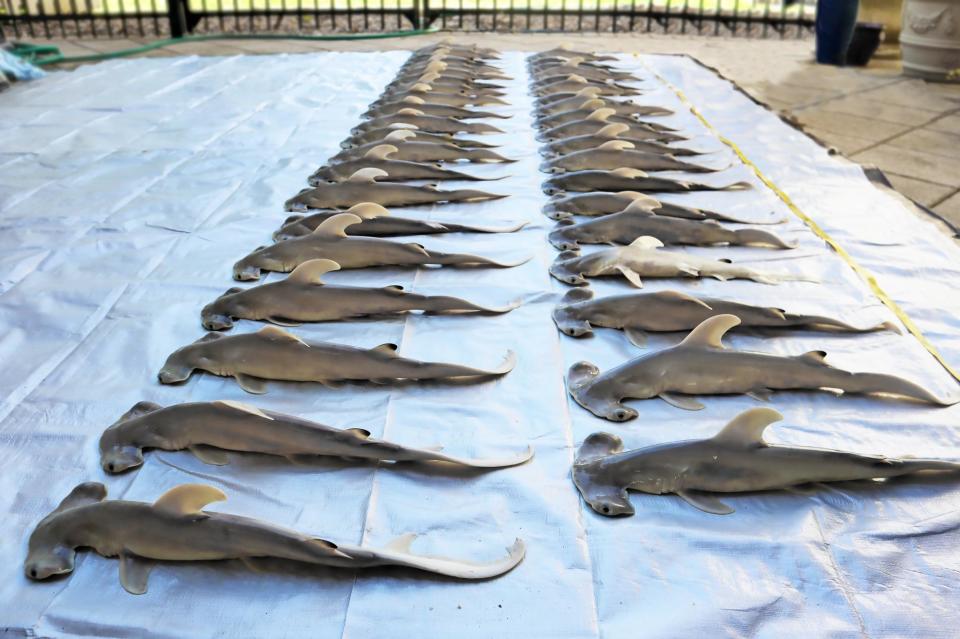14-foot shark pregnant with 40 pups washes ashore on Alabama beach
Ecologists are examining the remains of a pregnant 14-foot-long great hammerhead shark that washed up ashore on an Alabama beach on April 20.
A day after the shark washed ashore, ecologists from the Mississippi State University Coastal Research and Extension Center traveled to Orange Beach in Alabama to examine a deceased great hammerhead shark and its 40 pups, which were all dead when they washed up ashore, MSU Marine Fisheries Ecology said in a post on Facebook.
Scientists examined the shark's major organs, including its heart, stomach and kidneys, and none showed any signs of trauma.

"Moreover, there were no abnormal lesions or unusual parasites," MSU said.
Scientists said that while it was "impossible" to determine the cause of death with absolute certainty, they suspect the shark died as a result of fishing mortality — that is, likely because it was accidentally caught. They noted that great hammerheads are more prone to the physiological effects of capture stress than other shark species and pregnancy aggravates physiological stress.
After obtaining samples, the MSU scientists brought them back to the university lab for further analysis. Among the samples taken were several vertebrae from the adult shark.
"These can be used to determine the age of the shark and its birth location. Vertebrae can also be used to examine population structure and connectivity," MSU said.
Scientists also removed muscle tissue from the mother shark to determine its feeding habits, the stomach, and several fin clips as well to "contribute to a current study examining genetic population structure, as well as the number of breeding individuals in the population."
Fin clips were also removed from each of the pups in order to determine relatedness among the siblings, because the broods of many sharks are usually sired by more than one male shark in a phenomenon known as "multiple paternity," according to MSU.
Scientists said the number and size of the pups also provide important information about brood size and the timing of birth.
MSU said they plan on preserving the pups and donating them to classrooms for educational purposes.
"Although we are saddened by the loss of these individuals, we are grateful to the City of Orange Beach Coastal Resources for reaching out to the scientific community and enabling us to study these unique specimens," MSU said. "The samples we took provide an opportunity to enhance our knowledge of great hammerheads in the northern Gulf of Mexico, which is critical for their continued conservation."
MSU noted that great hammerheads should not be feared because they are not aggressive sharks and have never been implicated in any fatal attack.
Great hammerheads located off the coast of Alabama patrol coastal waters primarily to hunt stingrays, MSU said.
Disney sues Florida Gov. Ron DeSantis over "government retaliation"
Stocks fall as First Republic Bank shares plummet
British antitrust regulators block Microsoft purchase of Activision Blizzard
